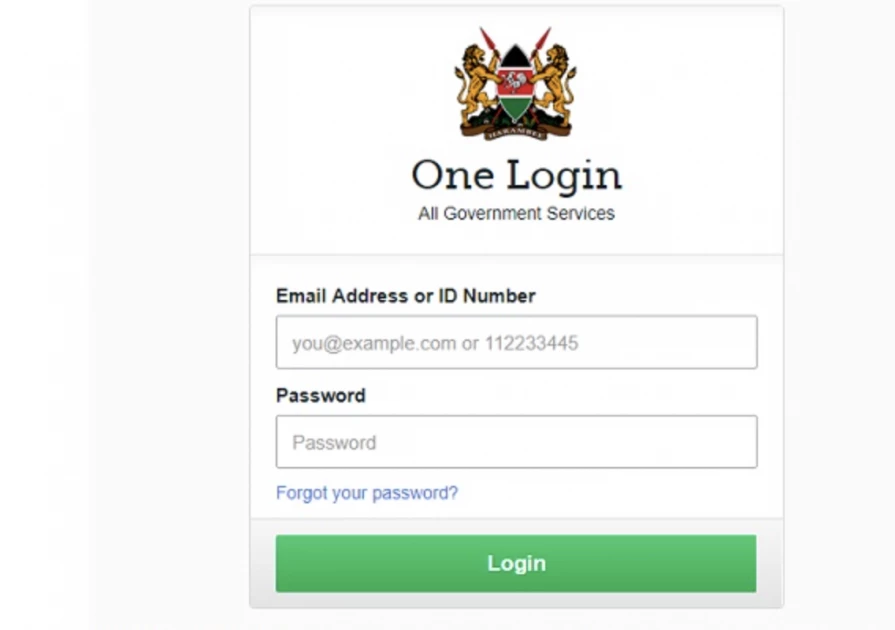OPINION: Unique identification essential for digitisation of services


Audio By Vocalize
The digitisation of essential Government services and availing them to the convenience of the public ranks high among the priority targets of President William Ruto’s administration.
The President has staked his personal commitment to the successful realisation of this drive. The creation of a fully-fledged State Department for Immigration and Citizen Services under the Ministry of Interior and National Administration and his public pronouncements on the subject attests to his dedication.
The e-citizen platform will provide the framework to anchor the delivery of digital services. Already, several critical government services are accessed through this portal.
These include application for a host of documents related to Immigration, Civil Registration, marriage, driving, land transactions, businesses and the Kenya Revenue Authority services, among others.
Pursuing the full digitisation of services by governments is a global trend. Besides freeing the access and retrieval of important information from the tedium and limitations of physical locations and manual files, digitisation also enables the consolidation and integration of relevant official records. This, in turn, supports the creation and growth of accurate, verifiable and reliable data that the Government can deploy to inform and customize its social-economic planning.
Effective digitisation of official records will hinge on credible primary data. ‘Credibility’ chiefly refers to the accuracy and timeliness of data capture and its compilation/transmission from and to authorised sources.
For instance, these could be records of the number of births in a specific area and within a stated period. How exhaustive and accurate the records will be and how fast they will be cascaded to national and other levels of compilation are critical variables.
Digitisation could further benefit from a standardized registration format. Adopting and enforcing a specific manner of capturing essential details will simplify the transmutation of captured data. Ideally, this will factor in precautions around forgery, duplication, personation and incorporate pertinent features to enhance data security. It should also be implemented at the earliest possible opportunity for official capture of citizens’ details.
These considerations underpin the proposed Unique Personal Identifier (UPI) that will be issued at birth. The UPI that is subject to Government approval will be issued across the country to new-borns who merit Kenyan citizenship. In compliance with the Births and Deaths Registration Act, it will also be adopted for children born outside the country to Kenyan citizens and who are eligible for Kenyan citizenship.
Kenya has made huge strides in the registration of births. Official records reveal that 86.2 percent of all births were captured in the country in 2021. The birth registration stage is therefore an attractive genesis for foundation data. Essentially, the UPI will be the birth certificate number. As the name implies, it will be a personalised reference detail akin to the current Identity Card number.
Where death occurs, UPI will also serve as the death certificate number. This could be an important means to bridging the current documentation deficit and enhancing the accuracy of official mortality records. In 2021 for instance, only 55.4 percent of deaths were reported. High unreported deaths are undesirable for many reasons. Besides inflating population figures, they could abet identity theft crimes and manipulation of numbers in elections and other contests.
Between the cradle and the grave, UPI can also be adopted as the official reference for a host of other services that currently demand separate identity. It can be used as the school’s admission number as well as the index number for national examinations.
UPI can serve as the ID number on attaining 18 years, the registration number for National Hospital Insurance Fund (NHIF), National Social Security Fund (NSSF) and the Driving License Number.
With UPI, multiple registration of citizens will be eliminated. Various state agencies that are currently engaged in separate registrations can then be collapsed to free personnel, finances and other scarce resources to other needs. It will obviate different registration numbers and hasten the generation of a clear, integrated and harmonised register.
The UPI will also advance equality and fairness in access to services. Since a UPI will amount to an affirmation of citizenship, it will negate the vetting of communities living along international borders as a security prerequisite to issuance of IDs and passports.
An obvious question is how different UPI will be from Huduma Namba. Whereas the latter sought to register citizens afresh but under a different system, UPI will repurpose an existing and continuous exercise. Nurses and other medical personnel in maternity facilities will continue to undertake registration while assistant chiefs will register community births.
By targeting a comparatively smaller scale and riding on existing laws and enforcement infrastructure, the Government hopes UPI can avoid the pitfalls that befell Huduma Namba.
Instructively, some of the legal minefields that handicapped Huduma Namba that are relevant to UPI have since been addressed. The Data Protection Act of 2019 and the Office of the Data Commissioner have been enacted and institutionalised to allay concerns about data security and integrity.
A planned multisectoral involvement and a robust engagement of all stakeholders will be at the heart of UPI buy-in and rollout. The Ministries of Health, Interior and ICT will also play prominent roles. The media and opinion shapers will be essential partners in ensuring that the public is well informed and fully engaged in the implementation.
Prof. Bitok is the Principal Secretary, Immigration and Citizen Services


Leave a Comment